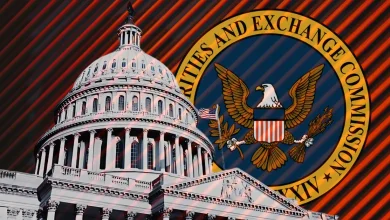
Brazil's Bitcoin Bill Clears First Hurdle: Bill 4501/2023 proposes allocating up to 5% of Brazil’s foreign reserves to Bitcoin via a national reserve called RESBiT.
Government Pushes Structured Crypto Adoption: The bill mandates cold wallet storage, biannual audits, and gradual adoption under Central Bank oversight.
On June 12, Brazil’s strategic Bitcoin Reserve Bill 4501/2023 passed first committee, pushing the country closer to holding $BTC as part of its national reserve. The significant move suggests the creation of a national reserve termed “RESBiT,” which allows up to 5% of the country’s foreign exchange to be allocated to Bitcoin.
Key Highlights of Brazil’s Bitcoin Reserve Plan
Bill Project No. 4,501 of 2024 “Provides for the formation of a Sovereign Strategic Reserve of Bitcoins by the Federal Government and other measures”, stated the proposal of the bill.
- The Brazil Bitcoin Reserve bill 4501/2023 was introduced by Brazilian Federal Deputy Eros Biondini and received favorable feedback of approval from the Economic Development Committee– two of Brazil’s Chamber of Deputies.
- When the reserve was initially introduced, it aimed to back Brazil’s central bank currency using blockchain and AI for transactions. This legislation aims to create a national Bitcoin reserve that would hold up to 5% of the country’s reserve.
- The bill highlights that the Central Bank of Brazil and the Ministry of Finance will be the operating bodies managing reserves using stringent security protocols as cold wallets. It will be required to submit audited transparency reports to Congress every six months.
- The Bitcoin reserve bill also aims to diversify the Treasury’s assets by supporting a country’s central bank digital currency.
What is the Brazilian Government Saying About the Bitcoin Bill?
Luis Gastao, the rapporteur of the proposal and also a Brazilian Congressman, emphasised that if Brazil adopts this Bitcoin Reserve plan, it can help reduce reliance on fiat currency. He added that it could also assist in diversifying its assets. He added–
“We are advocating for a cautious and gradual implementation strategy to balance the potential benefits and risks of adding Bitcoin to Brazil’s official reserves.”
Final Note
Additionally, this new Bitcoin reserve bill is seeking approval from the committee on technology, constitution, and finance for further consideration. If the bill is ultimately passed, Brazil will second Latin American Country, just behind El Salvador, to legally establish a bitcoin reserve. However, Brazil’s approach is considered more structured. Brazil’s initiative for a Sovereign Bitcoin Reserve can steer other nations’ tech policies.
Never Miss a Beat in the Crypto World!
Stay ahead with breaking news, expert analysis, and real-time updates on the latest trends in Bitcoin, altcoins, DeFi, NFTs, and more.
FAQs
Yes, cryptocurrencies like Bitcoin are legal in Brazil, though not legal tender. The Brazilian Virtual Assets Law (BVAL) regulates digital assets, ensuring transparency and consumer protection.
Crypto profits from selling or trading are subject to capital gains tax (15%-22.5%, depending on profit and transaction type). Income from receiving crypto is taxed as income. Monthly foreign transactions over $30,000 must be reported.
The Central Bank of Brazil (BCB) primarily oversees the financial aspects and licensing of virtual assets. The Securities and Exchange Commission (CVM) regulates crypto classified as securities. Both adhere to FATF standards.
Trust with CoinPedia:
CoinPedia has been delivering accurate and timely cryptocurrency and blockchain updates since 2017. All content is created by our expert panel of analysts and journalists, following strict Editorial Guidelines based on E-E-A-T (Experience, Expertise, Authoritativeness, Trustworthiness). Every article is fact-checked against reputable sources to ensure accuracy, transparency, and reliability. Our review policy guarantees unbiased evaluations when recommending exchanges, platforms, or tools. We strive to provide timely updates about everything crypto & blockchain, right from startups to industry majors.
Investment Disclaimer:
All opinions and insights shared represent the author's own views on current market conditions. Please do your own research before making investment decisions. Neither the writer nor the publication assumes responsibility for your financial choices.
Sponsored and Advertisements:
Sponsored content and affiliate links may appear on our site. Advertisements are marked clearly, and our editorial content remains entirely independent from our ad partners.







